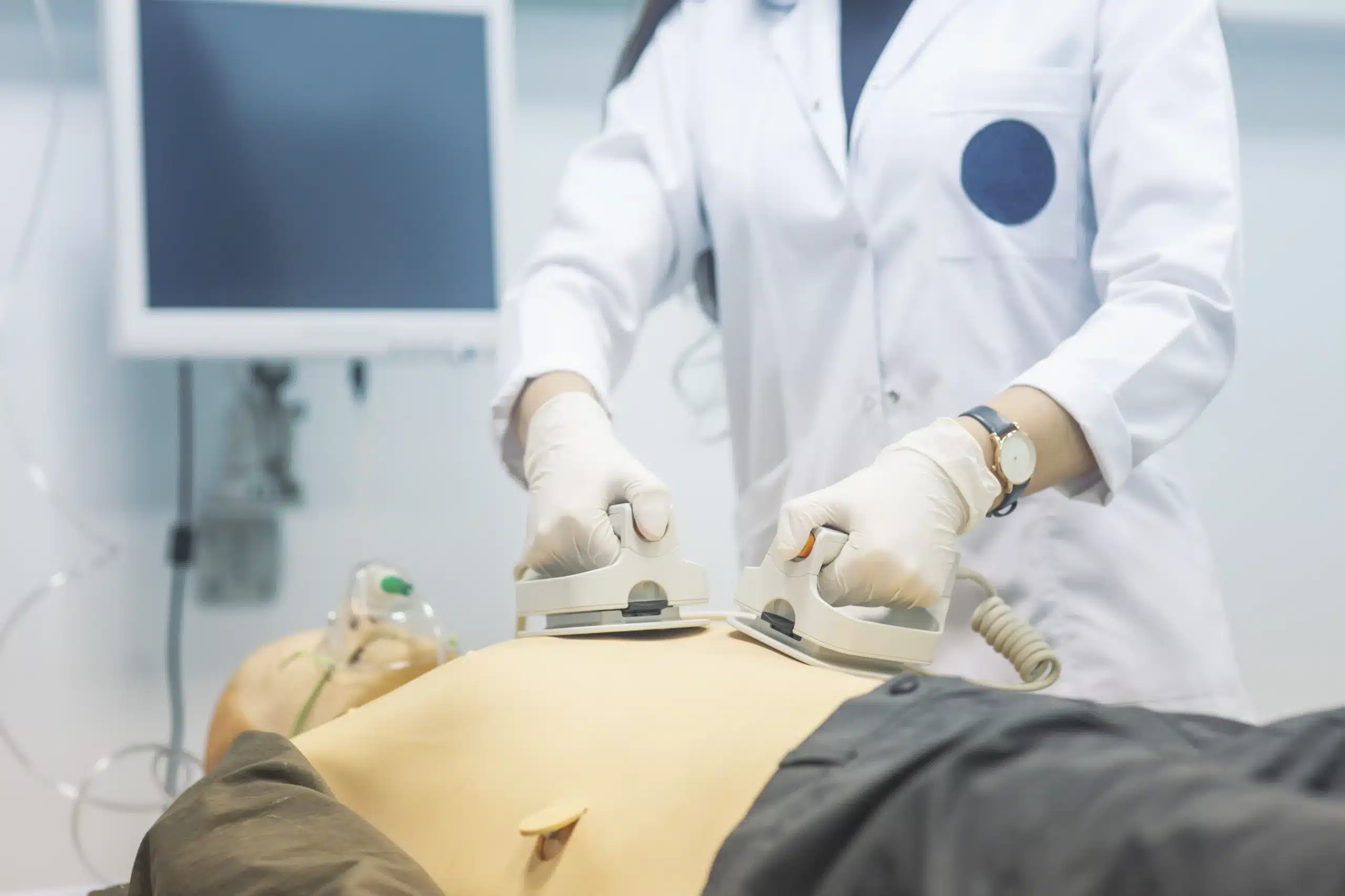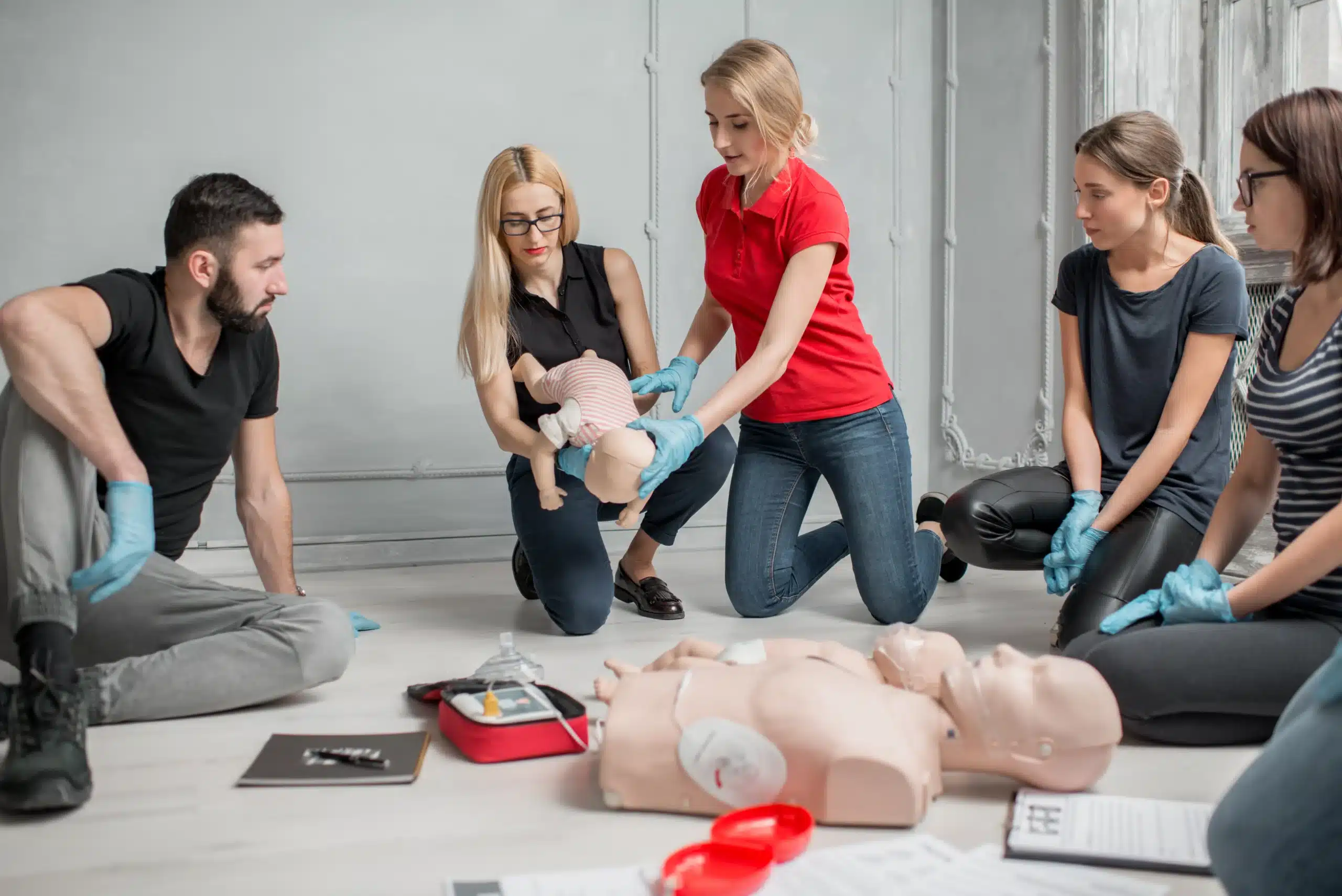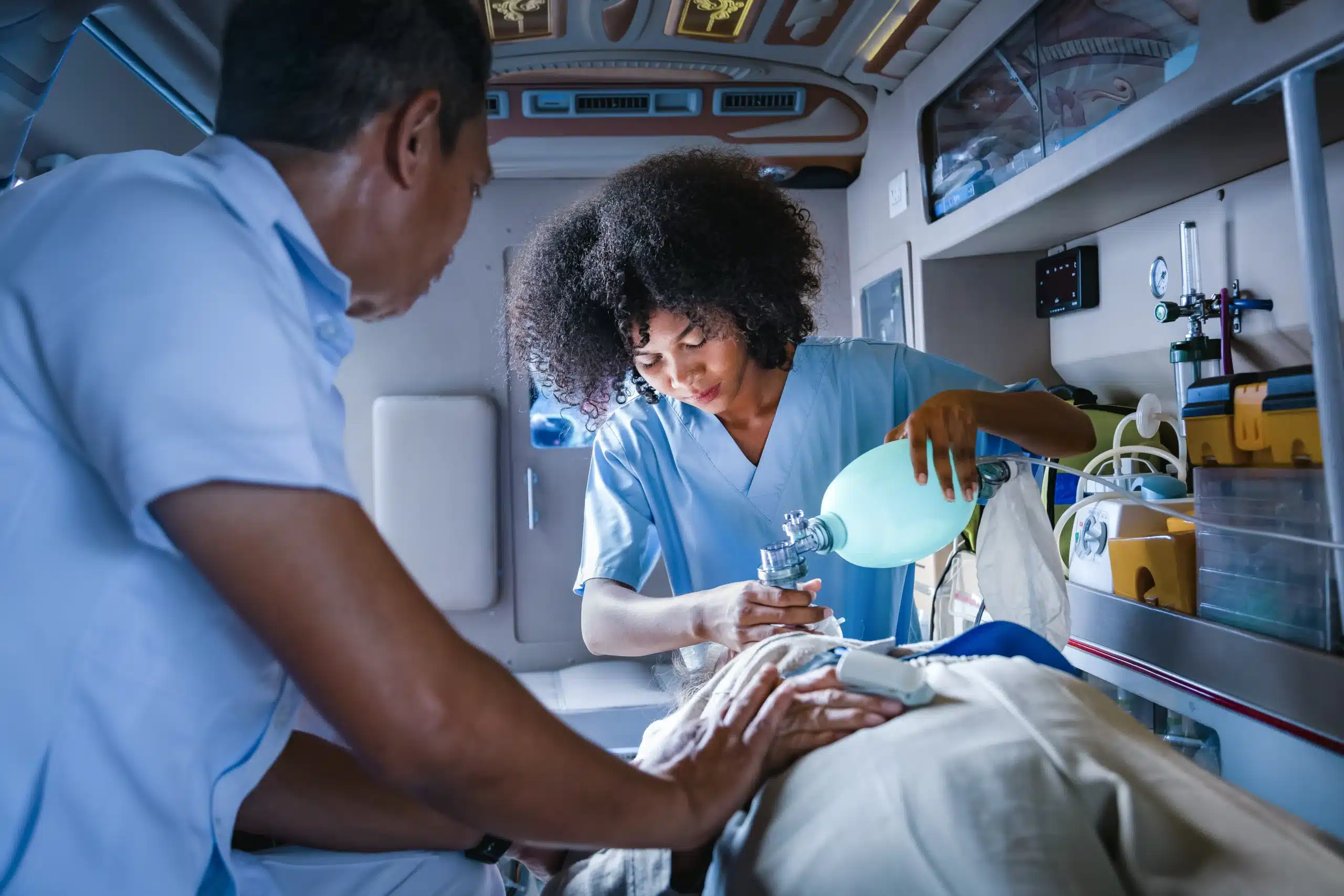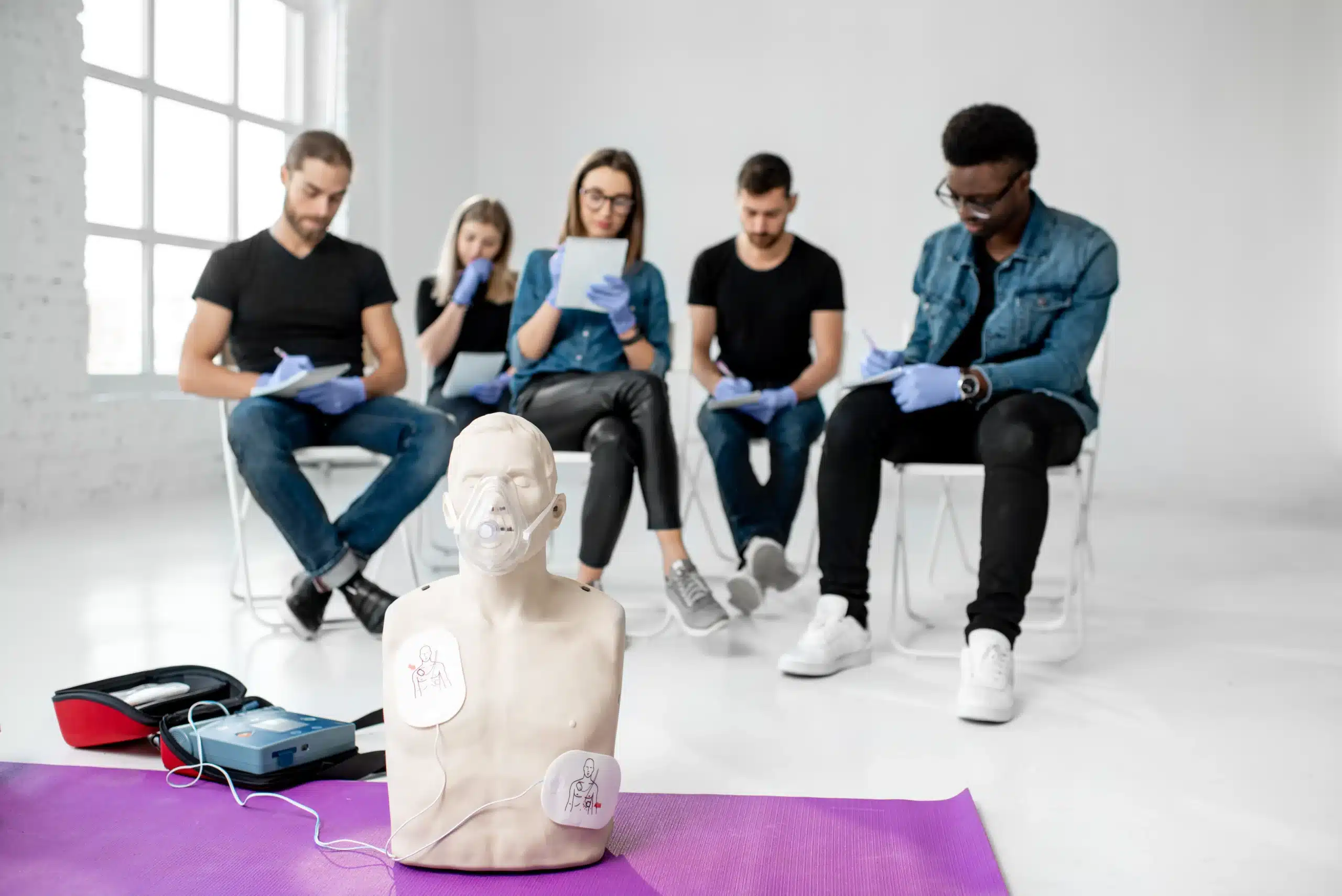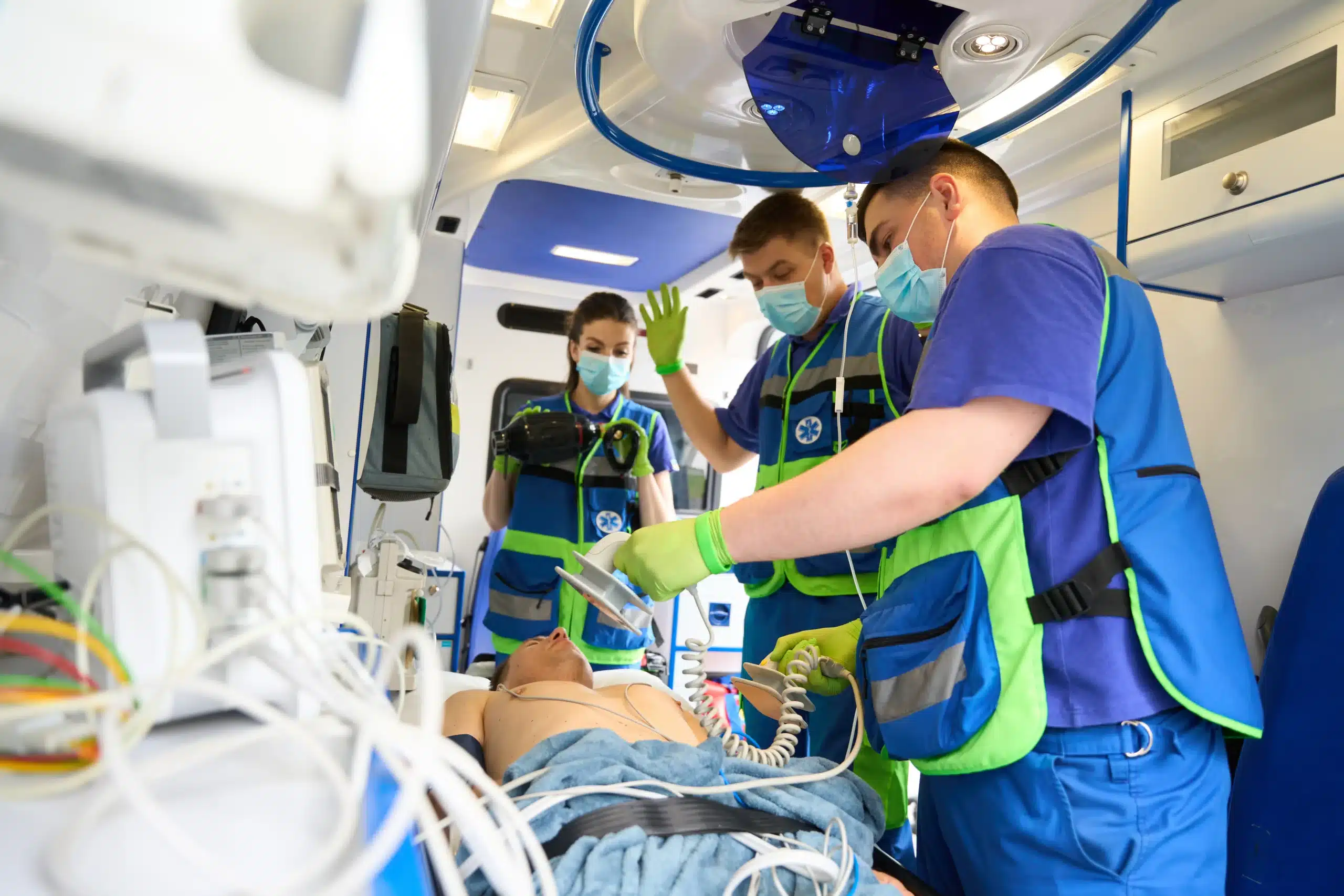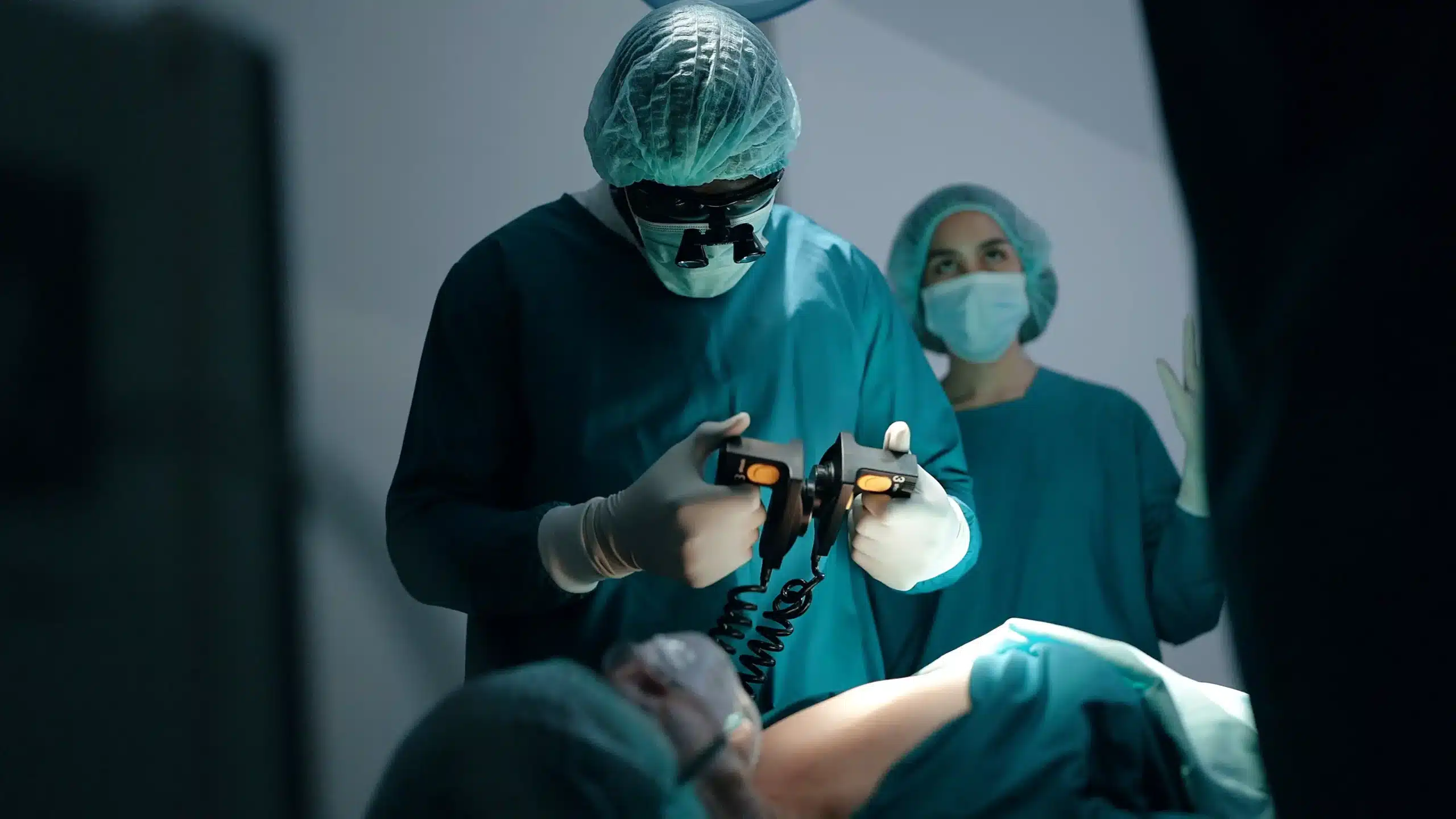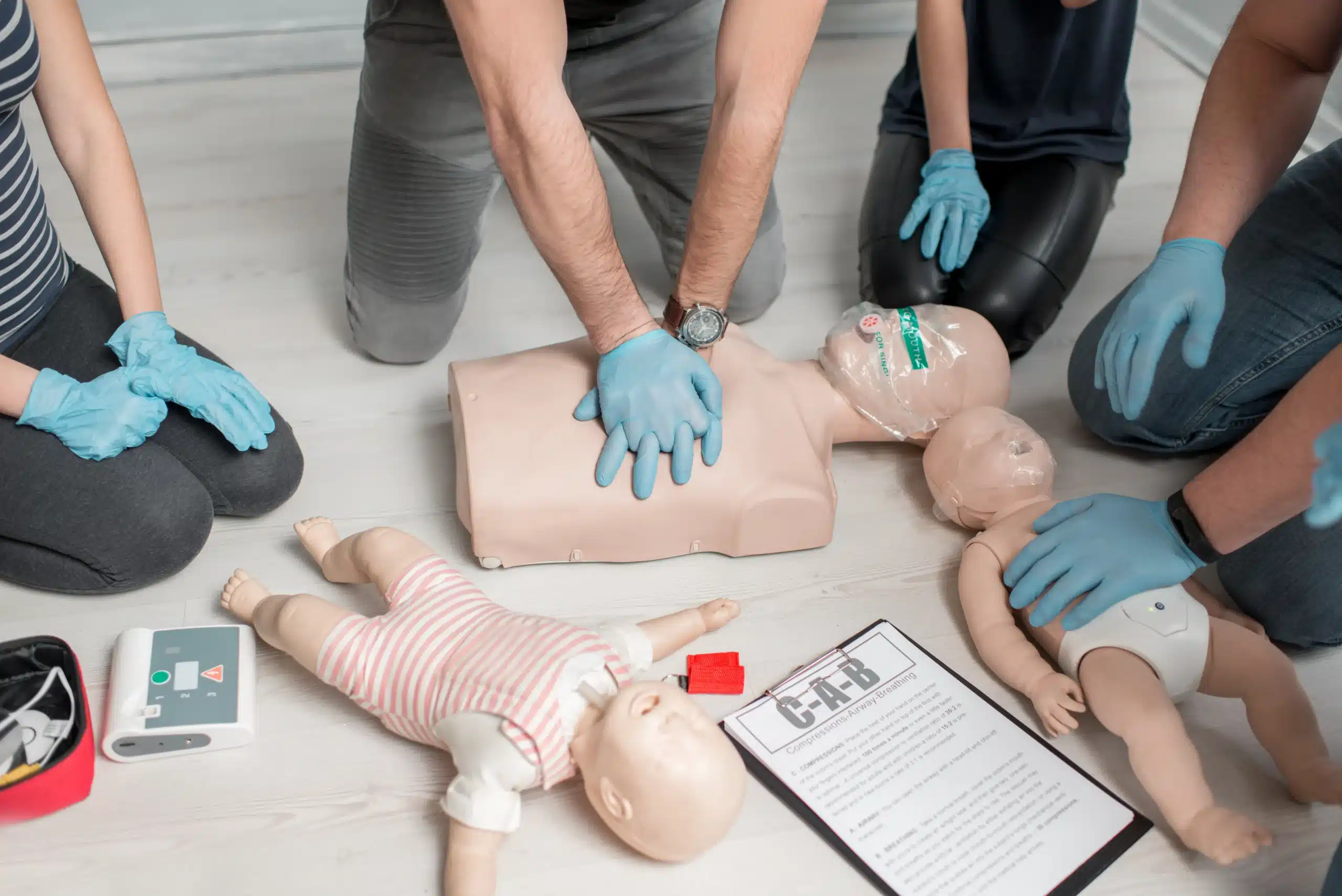Life with kids is full of surprises, and not all of them are pleasant. Knowing pediatric CPR and first-aid in Fresno can transform you from a bystander to a first responder in emergencies. This guide simplifies the process of finding the right training, covering everything from course content and certification options to local providers and what to expect during your training. We’ll also discuss the key differences between adult and pediatric CPR and why specialized training is so crucial for parents and caregivers. Get ready to feel confident and prepared to handle any childhood emergency.
Key Takeaways
- Pediatric CPR and first aid empower you to act in emergencies: Learning these skills allows you to confidently respond to various medical situations involving infants and children, potentially making a critical difference until professional help arrives.
- Fresno offers accessible and affordable training: You can find a course that fits your needs and budget with various local providers and options like group discounts. Explore different providers to compare what they offer.
- Hands-on practice builds confidence and competence: Choose a course that includes simulated scenarios and training equipment like infant and child CPR manikins. This practical experience will prepare you to act quickly and effectively in real emergencies.
What is Pediatric CPR and First Aid?
Pediatric CPR and first aid equip parents and caregivers with the skills to respond to emergencies involving infants and children. These courses cover a range of life-saving techniques, from treating minor injuries like cuts and burns to managing more serious situations like choking, drowning, and cardiac arrest. Knowing how to assess a child’s condition, provide immediate care, and when to seek professional help can make a critical difference.
Why Parents and Caregivers Need It
Emergencies involving children can happen anytime, anywhere. A child could choke on a piece of food at the dinner table, experience an allergic reaction at a park, or fall at home. Pediatric first aid and CPR training empowers parents and caregivers to respond swiftly and confidently in these situations. While professional medical help is always necessary, the minutes before paramedics arrive can be crucial. Having the skills to stabilize a child until help arrives can significantly improve their chances of a positive outcome. The American Red Cross and the American Heart Association offer courses covering these essential skills.
Key Differences from Adult CPR
Although adult and pediatric CPR share some similarities, there are key differences in technique and approach. Children have smaller airways and different physiological responses than adults, requiring modified CPR techniques. Pediatric Advanced Life Support (PALS) certification delves deeper into the specific needs of children in medical emergencies, covering topics like airway management, specialized resuscitation techniques, and recognizing signs of respiratory distress. While basic CPR training is valuable, PALS certification provides a more specialized focus, offering a higher level of preparedness for parents, caregivers, and healthcare professionals working with children. This specialized training isn’t typically included in standard CPR courses.
Pediatric CPR and First-Aid Classes in Fresno
Finding the right pediatric CPR and first-aid class can feel overwhelming, but knowing what certifications to look for and where to find reputable providers makes the process much easier. This section breaks down the types of courses available in Fresno and highlights some local options.
AHA-Certified Courses
The American Heart Association (AHA) sets the standard for CPR and first-aid training. AHA-certified courses cover essential life-saving techniques for infants, children, and adolescents, often including instruction on using an automated external defibrillator (AED) and managing choking emergencies. Look for providers offering certifications aligned with current AHA guidelines.
Red Cross-Certified Courses
The American Red Cross also offers excellent pediatric CPR and first-aid certification. Their courses equip participants with the skills to respond to various emergencies, including breathing and cardiac events in infants, children, and adults. The Red Cross emphasizes practical, hands-on training to build confidence in real-life situations.
Specialized Infant and Child CPR Classes
For those focused on infant and child care, specialized courses offer in-depth age-specific techniques and considerations. These classes often cater to parents, grandparents, babysitters, and childcare professionals, providing a comprehensive skill set for responding to medical emergencies in younger children.
Local Providers
Fresno offers several reputable training centers for pediatric CPR and first aid. Here are a few to explore:
Fresno CPR Classes
Fresno CPR Classes offers a range of AHA-certified courses, including BLS, ACLS, PALS, and first aid, prioritizing excellent customer service and affordability. They also offer group discounts, making it a convenient option for families or community groups.
Heart Link CPR
Heart Link CPR provides various courses, including CPR, first aid, and BLS, catering to different needs and experience levels. They offer classes in Fresno for easy local access. You can view their class schedule online.
American Red Cross Fresno Chapter
The local Red Cross chapter offers various CPR and first-aid courses, including those specifically for pediatric emergencies. Their established reputation and focus on hands-on practice make them a solid option.
CPR Plus
CPR Plus specializes in on-site training for private groups, offering flexibility and convenience for busy families or workplaces. They can tailor instruction to specific needs and provide personalized attention. Check out their website for more information on Fresno CPR training.
Safety Training Seminars
Safety Training Seminars offers a comprehensive selection of AHA-certified courses, including CPR, BLS, ACLS, and PALS. They focus on providing high-quality training that meets industry standards. You can find more details about their Fresno courses on their website.
What to Expect in Training
Knowing what to expect can help you feel more prepared and confident going into your pediatric CPR and first aid training. Here’s a glimpse at the essential skills, hands-on activities, and specialized equipment you’ll encounter:
Essential Skills and Techniques
Pediatric CPR and first aid classes cover a range of life-saving skills. You’ll learn how to recognize and respond to various medical emergencies in infants, children, and teens. Expect to cover these key areas:
- Pediatric CPR Techniques: This training focuses on CPR modified for young bodies, including chest compressions, rescue breaths, and using age-appropriate ventilation devices. You’ll learn the differences between performing CPR on infants, children, and teens. For more information, check out this overview of pediatric first aid and CPR training.
- First Aid for Common Pediatric Emergencies: From minor cuts and burns to more serious situations like choking or allergic reactions, you’ll gain the skills to provide immediate care. The American Red Cross details the range of first aid emergencies covered in their pediatric courses, including recognizing signs and symptoms and administering appropriate first aid.
- Recognizing and Managing Breathing and Cardiac Emergencies: You’ll learn how to identify and respond to life-threatening situations like respiratory distress or cardiac arrest in infants, children, and adults.
Hands-On Practice
Hands-on practice is a cornerstone of effective CPR and first aid training. You’ll have the opportunity to apply what you learn in a simulated environment, guided by experienced instructors. This practical experience builds confidence and competence, preparing you to act quickly and effectively in a real emergency. The hands-on training component is emphasized by organizations like the American Red Cross. Many providers, like Fresno CPR, offer on-site training for private groups, allowing for tailored instruction and practice.
Training Equipment
Your training will likely involve specialized equipment designed to simulate real-life scenarios. This might include:
- Infant and Child CPR Manikins: These lifelike manikins allow you to practice chest compressions and rescue breaths on models designed to mimic the anatomy of infants and children. The American Heart Association uses these in their Heartsaver Pediatric First Aid CPR AED course, which is a great option for those with limited medical experience.
- AED Trainers: Automated External Defibrillators (AEDs) are life-saving devices used to treat sudden cardiac arrest. You’ll learn how to operate an AED safely and effectively in simulated scenarios.
- First Aid Supplies: Bandages, dressings, and other essential first aid supplies will be used during practice sessions to familiarize you with their proper use. The American Heart Association provides resources outlining the equipment used in their pediatric courses.
Certification and Validity
Knowing the ins and outs of certification is key when choosing a CPR and First Aid class. This section clarifies what to expect in Fresno.
Available Certifications
Fresno offers various certification courses, many adhering to American Heart Association guidelines. This ensures you receive standardized, high-quality instruction applicable across the country. You’ll find courses covering adult, child, and infant CPR and First Aid, equipping you to handle a range of emergencies. For specific details on local options, check out this Fresno CPR class guide.
Certification Duration
CPR and First Aid certifications are typically valid for two years, reflecting the importance of maintaining current knowledge and skills. Regular practice ensures you can confidently and effectively respond to emergencies.
Renewing Your Certification
It’s wise to renew your certification before it expires to keep your skills sharp. Many Fresno training providers offer convenient scheduling options, including weekday and weekend classes, evening courses, and even intensive one-day programs. Fresno CPR Classes offers a variety of courses and schedules to fit your needs. While your certification officially lasts for two years, remember that regular refreshers are beneficial, as skills can diminish over time. Consider revisiting training annually or taking a refresher course to stay up-to-date with the latest techniques. You can find more information on local Red Cross refresher courses here.
Cost and Class Details
Knowing the costs and time involved can help you plan for your Pediatric CPR and First Aid training. Here’s a general overview of what to expect in Fresno:
Course Pricing
Pediatric CPR and First Aid courses in Fresno typically range from $40 to $100. Several factors influence the final price, including the type of certification (like BLS Certification), whether you choose an in-person, blended, or online course, and the specific training provider. Fresno CPR Classes offers a low price guarantee, so you can feel confident you’re getting a good value.
Time Commitment
Most CPR and First Aid certification courses require a one- to two-day commitment. This timeframe provides ample opportunity for in-depth learning and hands-on practice, ensuring you feel prepared to handle emergencies involving children.
Special Offers and Group Discounts
If you’re looking to train with a group of friends, family, or coworkers, check if the training center offers group discounts. Many providers, including Fresno CPR Classes, offer discounted rates for group enrollments, making it more affordable to learn these vital skills together. Contact us to learn more about our group discounts and special offers.
Choosing the Right Class
Finding the right pediatric CPR and first aid class means considering a few key factors to ensure you receive quality training that fits your needs and budget.
Factors to Consider
- Cost of Classes: CPR class prices typically range from $40 to $100, depending on the certification (like BLS for healthcare providers), the format (in-person, blended, or online), and the training center. Fresno CPR Classes offers a low-price guarantee, so you can find affordable options.
- Quality of Instruction: Look for training providers that follow American Heart Association guidelines, ensuring you receive high-quality, current instruction. Experienced instructors and comprehensive materials are essential for effective learning. Ask about the instructor’s experience and the resources provided.
- Accessibility of Training Programs: Consider the location, schedule, and accessibility of the training. Choose a class that fits your schedule and offers convenient options, such as weekend or evening sessions. Fresno CPR Classes offers daily classes in over 60 cities, making it easier to find a class nearby.
- Class Size: A smaller class allows for more personalized attention from the instructor and more hands-on practice. If you learn best in a smaller group, ask about class size when choosing a provider. This can significantly impact your learning experience.
Comparing Fresno Courses
Fresno offers various pediatric CPR and first aid courses, each with its own advantages. Here’s a comparison to help you choose:
- Course Offerings: Fresno CPR Classes offers various courses, including CPR/AED, First Aid (often combined with CPR/AED), BLS Provider for healthcare professionals, Bloodborne Pathogens training, and Pediatric First Aid & CPR/AED with EMSA certification for childcare providers. This variety lets you select the course that best suits your needs. They also offer RQI classes and group discounts.
- Comprehensive Training: Many courses, including those aligned with the American Red Cross, cover a wide range of emergencies involving adults, children, and infants. Look for a course that provides comprehensive training in recognizing and responding to various first aid, breathing, and cardiac emergencies. Ask about the specific topics covered to ensure the course meets your expectations.
- Certification Options: Fresno CPR Classes offers American Heart Association certifications, including BLS, ACLS, PALS, and First Aid. These certifications are widely recognized. If you need a specific certification for your job, confirm that the course provides it. For any questions, contact Fresno CPR Classes directly through their contact page.
Getting Started
Now that you understand how important pediatric CPR and first aid are, let’s discuss how to begin your training. This section covers everything from finding the right class to preparing for your first session.
Signing Up for Classes
Finding a pediatric CPR and first-aid class in Fresno is easier than you might think. Organizations like the American Red Cross, local hospitals, community centers, and private providers such as Fresno CPR Classes offer these essential courses. You’ll likely find various class formats, including in-person, blended learning (online and in-person instruction), and online-only options. Class prices typically range from $40 to $100, depending on the certification, format, and training center. Fresno CPR Classes offers a low price guarantee, so you know you’re getting a good deal. Many providers also offer group discounts, a smart choice for families or friend groups wanting to learn together.
Preparing for Your Session
Once you’re signed up, it’s helpful to know what to expect and how to prepare. Pediatric first aid, CPR, and AED courses address various emergencies affecting infants and children. You’ll learn to recognize and respond to breathing and cardiac emergencies and other first aid situations. The American Heart Association provides comprehensive guidelines for these courses, ensuring quality instruction. Most classes include hands-on practice and demonstrations with training equipment like mannequins. This practical experience is essential for building confidence and mastering the techniques. While pre-class studying isn’t required, familiarizing yourself with basic first aid principles can be helpful. Knowing what to expect will make you feel more comfortable and ready for your training. You’ll receive a course completion card, valid for two years, when you finish the course.
Related Articles
- Pediatric CPR & First-Aid Training in Madera – Fresno CPR Classes
- CPR & First-Aid Training in Fresno: A Complete Guide – Fresno CPR Classes
- Why CPR Matters in Healthcare (And How to Get Certified)
- BLS Certification in Clovis: The Essential Guide – Fresno CPR Classes
- CPR Classes in Madera: Find Training Near You – Fresno CPR Classes
Frequently Asked Questions
What are the main differences between adult and child CPR? While the basic principles are similar, child CPR uses less force for compressions and rescue breaths due to a child’s smaller size. There are also differences in hand placement and the depth of compressions. Specialized training like PALS (Pediatric Advanced Life Support) provides more in-depth knowledge for healthcare providers working with children.
How do I choose the right pediatric CPR and first-aid class in Fresno? Consider factors like cost, the instructor’s experience, class size, location, and schedule. Look for classes that offer American Heart Association or Red Cross certification to ensure you’re receiving high-quality instruction. Check if the provider offers a low-price guarantee or group discounts. Reading reviews and comparing different providers can also help you make an informed decision.
What if I’m nervous about the hands-on practice during the training? It’s completely normal to feel a little apprehensive about the hands-on portion. The instructors are trained to create a supportive learning environment. They will guide you through each step, provide constructive feedback, and answer any questions you have. The practice scenarios are designed to build your confidence and prepare you to respond effectively in a real emergency.
How long is a typical pediatric CPR and first-aid certification valid, and how do I renew it? Certifications are typically valid for two years. You’ll need to retake the course to renew your certification. Many providers offer refresher courses or renewal classes that cover the latest guidelines and techniques. It’s a good idea to sign up for a renewal class a few weeks before your current certification expires.
What if I have other questions about pediatric CPR and first aid not covered here? Reach out to a local training provider like Fresno CPR Classes. They can answer your specific questions about course content, certification, scheduling, and any other concerns you might have. Don’t hesitate to contact them directly – they’re there to help you feel prepared and confident in your ability to respond to emergencies involving children.
